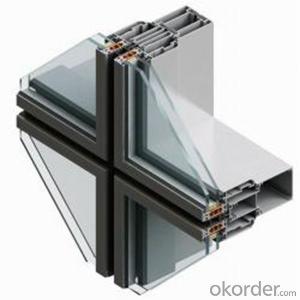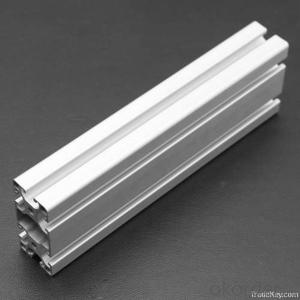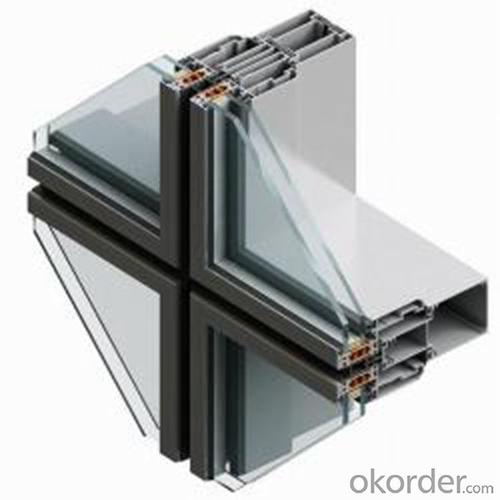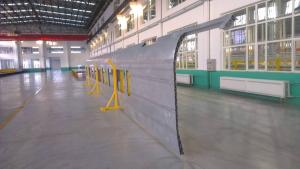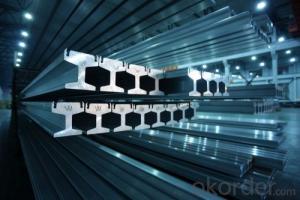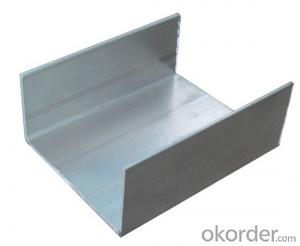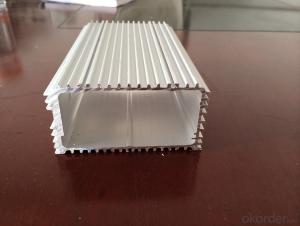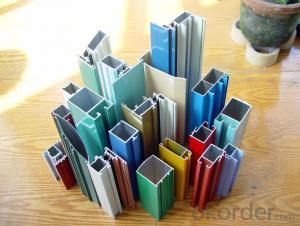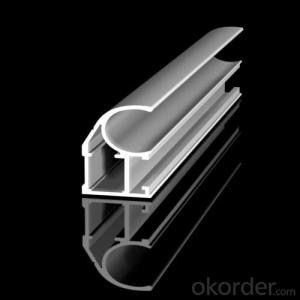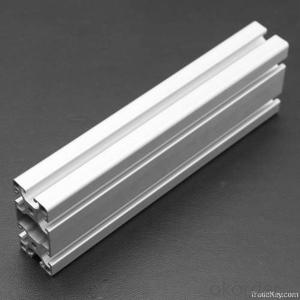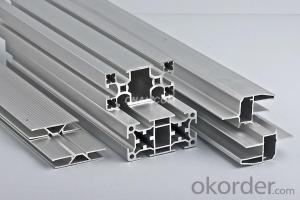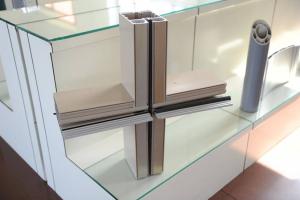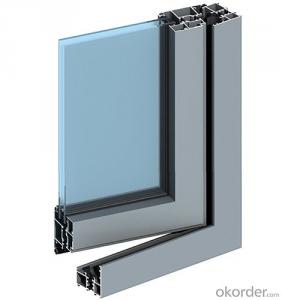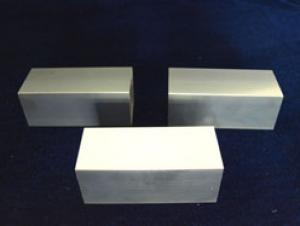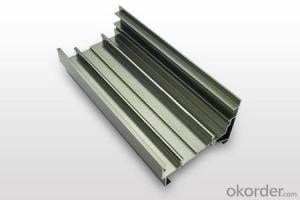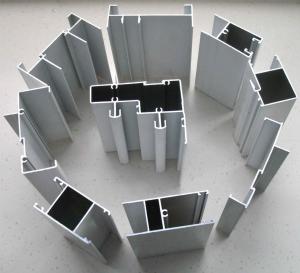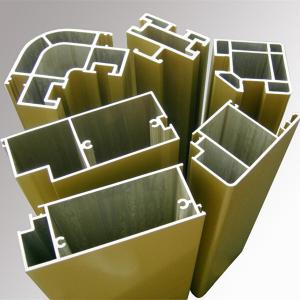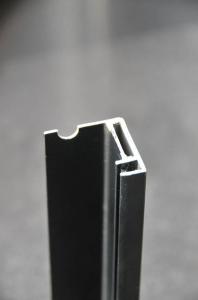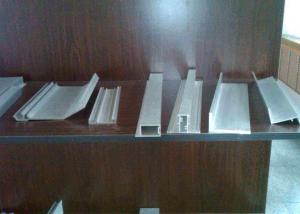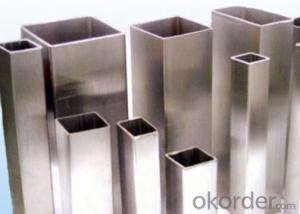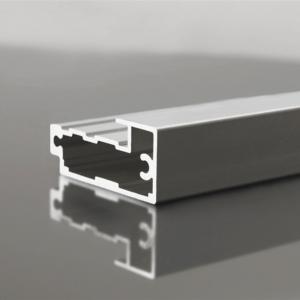Aluminum Square Tube Profiles - Silver Finish Anodized Alloy Aluminum Profile for Glass Door Design
- Loading Port:
- Shanghai
- Payment Terms:
- TT OR LC
- Min Order Qty:
- 5 m.t.
- Supply Capability:
- 10000 m.t./month
OKorder Service Pledge
OKorder Financial Service
You Might Also Like
Specification
1. Specification of Silver Finish Anodized Alloy Aluminum Profile for Glass Door Design
Alloy | AA1050,AA1060, AA1070, AA1100 |
Temper: | H12, H14, H16, H18, H22, H24, H26, H32,HO, F |
Thickness: | 0.10-500mm |
Width: | 10mm- 2200mm |
Standard: | GB/T3880-2006, ASTM, ISO, EU standard |
Special Specification is available on customer’s requirement | |
2. Application of Silver Finish Anodized Alloy Aluminum Profile for Glass Door Design
wall cladding, ceilings, bathrooms, kitchens and balconies, shutters, doors,windows…
3. Feature of Silver Finish Anodized Alloy Aluminum Profile for Glass Door Design
Surface Quality :
Be free from Oil Stain, Dent, Inclusion, Scratches, Stain, Oxide Decoration, Breaks, Corrosion, Roll Marks, Dirt Streaks and other defect which will interfere with use,
Mochenical Property:
Chemical Composite and Mechanical Property
4. Certificate:
SGS and ROHS(if client request, paid by client), MTC(plant provided), Certificate of Origin(FORM A, FORM E, CO), Bureau Veritas and SGS (if client request, paid by client), CIQS certificate
5. Image of Silver Finish Anodized Alloy Aluminum Profile for Glass Door Design
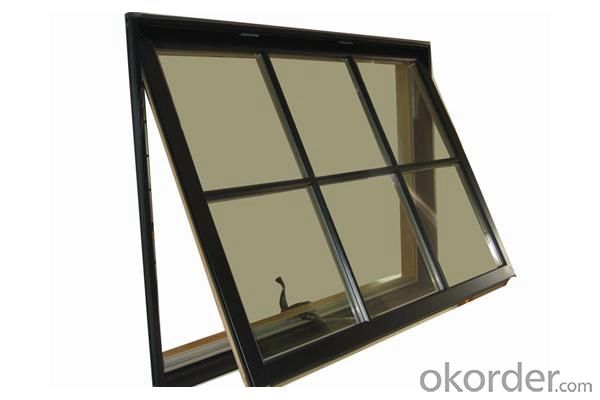
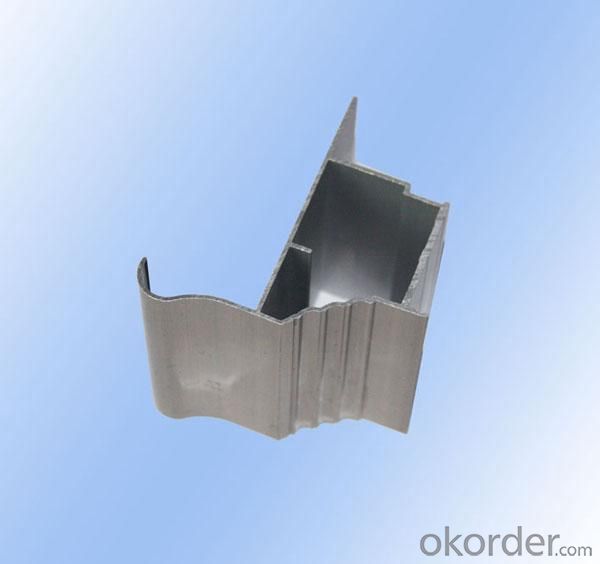
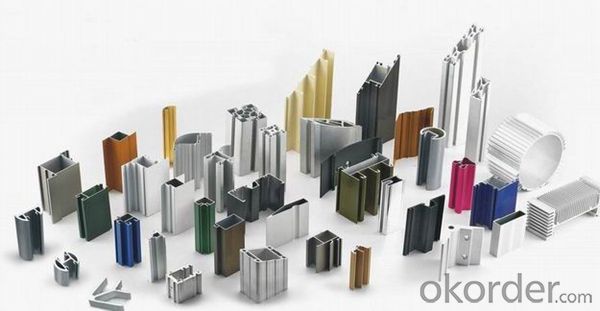
6. Package and shipping of Silver Finish Anodized Alloy Aluminum Profile for Glass Door Design
First, plastic cloth with drying agent inside; Second, Pearl Wool; Third, wooden cases with dry agent, fumigation wooden pallets, aluminum surface could cover blue PVC film
7. FAQ
Question 1: What is your MOQ?
We accept one ton per type for an order. But the detail we could negotiate.
Question 2: What is your normal terms of payment?
We always trade with you by T/T. But we also accept the L/C as you require.
Question 3: How many kinds of the surface treatment we can choose?
You could choose different color of powder coated. Anodized of black. matte silver, nature, champagne, bronze color. Mill finished. Wooden finished and printed.etc.
Question 4: Can you supply OEM services?
We offer OEM services for 17 years.
Question 5: How many days for opening the mould?
Normally about 10 days.According to the difficulty of your drawing.
Question 6: Can i choose the package what i want?
Yes, of course. We offer various kinds of package.e.g.PE foam. Shrink film. Wrapping paper.
But we would give you professional suggestion of package.
- Q: This question asks for the various types of aluminum profiles that are utilized in roofing systems.
- <p>Aluminum profiles for roofing systems come in various types, each serving specific purposes. Common types include: 1. <strong>Gutter Profiles</strong>: Used for collecting and directing rainwater from the roof. 2. <strong>Fascia Profiles</strong>: Cover the ends of rafters and provide a finished edge to the roof. 3. <strong>Soffit Profiles</strong>: Installed under the eaves to allow ventilation and conceal the underside of the roof. 4. <strong>Purlin Profiles</strong>: Support the roof sheeting and are placed perpendicular to the rafters. 5. <strong>Rafter Profiles</strong>: Mimic traditional wooden rafters and provide structural support. 6. <strong>Roof Ridge Profiles</strong>: Cap the ridge of the roof, where two slopes meet. 7. <strong>Hip and Valley Profiles</strong>: Used at the intersection of two sloping roof surfaces. Each profile is designed to withstand weather conditions and provide durability, with specific dimensions and shapes tailored to the roofing system's requirements.</p>
- Q: Aluminum Alloy rail safety glass balcony design, Aluminum Alloy profiles for what is standard specifications?
- The specifications and sizes of aluminum doors and windows are mainly marked by the height dimension of the section of the profiles (used in aluminium alloy doors and windows, and the thickness of the door and window frames), and form a series of dimensions. Aluminum doors and windows profiles are 40, 45, 50, 55, 60, 65, 70, 80, 90, 100mm and other dimensional series. Among them, the size of aluminum alloy window is smaller, and the size of aluminum alloy door is larger.1, aluminum doors and windows dimensioning the same series, not necessarily aluminum windows and doors section shape and size are the same. The aluminum alloy door and window profiles of the same size series are quite complex in shape and size. Must be analyzed and treated in accordance with the drawings.2 、 the aluminum door and window profile is divided into solid section and hollow section according to the shape of the section, and the application of the hollow profile is larger.3, aluminum doors and windows profiles of wall thickness, for aluminum alloy window of not less than 1.4mm, with aluminum alloy door is not less than 2mm.4, aluminum door and window profiles of length, size, dividing ruler, double ruler and indefinite ruler three kinds. Fixed length generally not more than 6m, variable length is not less than 1m.
- Q: What are the thermal properties of aluminum profiles?
- Due to its inherent characteristics as a metal, aluminum profiles possess favorable thermal properties. With its high thermal conductivity, aluminum can efficiently transfer heat, making it an ideal choice for applications requiring heat dissipation or thermal management. Furthermore, aluminum profiles exhibit minimal expansion and contraction with temperature changes due to their low coefficient of thermal expansion. This exceptional stability and resistance to warping or distortion, even in extreme temperature variations, make aluminum profiles highly reliable. In addition, aluminum profiles have a comparatively low melting point, making them suitable for applications involving high operating temperatures. The ability of aluminum to withstand such temperatures without compromising its structural integrity further enhances its thermal properties. Moreover, aluminum profiles demonstrate excellent thermal insulation properties as they are not easily conductive of heat. This makes them a suitable choice for applications requiring thermal insulation or the prevention of heat transfer, such as in building and construction or HVAC systems. In summary, the thermal properties of aluminum profiles, including high thermal conductivity, low coefficient of thermal expansion, high melting point, and good thermal insulation, contribute to their versatility and widespread use across various industries, ranging from automotive and aerospace to electronics and construction.
- Q: Can aluminum profiles be used in the production of industrial robots?
- Indeed, industrial robots can be manufactured utilizing aluminum profiles. Aluminum, being a lightweight and long-lasting material, presents numerous benefits when constructing robotic systems. Its strength-to-weight ratio is impressively high, rendering it ideal for constructing solid and dependable robot structures. Machining aluminum profiles is a straightforward task, enabling the creation of intricate and precise designs for diverse robot components, including frames, arms, and joints. Furthermore, aluminum's resistance to corrosion proves advantageous in industrial environments where robots may encounter harsh chemicals or challenging surroundings. In summary, aluminum profiles offer a versatile and cost-effective solution for the production of industrial robots.
- Q: Will the aluminum profile be deformed at about 100 degrees?
- Subject to circumstances:1, aluminum material or brand2 、 what is the forming state of aluminum profile, such as conventional: O, T4, T5, T6 and so on3. How long is it within 100 degrees of heat? Continuous or intermittent entry, such as intermittent access, interval time, etc.4, the aluminum profile forming itself has a certain mechanical strength, such as tensile and yield and ductility, etc., but these mechanical strength is based on different materials (section shape) in different extrusion processing (T) Inferior.For example, a solid bar around 10MM, material 6061-T6, a short time into the furnace temperature of 100 degrees, the annealing temperature will make its hardness drops more quickly, then a long time will decrease, but no hardness.The material you say can not be deformed, the aforementioned points need to be clear, or any answer is biased, and I hope to help you!
- Q: Are there any special considerations for installing aluminum profiles?
- Installing aluminum profiles involves several important considerations. To begin with, proper alignment and leveling of the profiles during installation is crucial. This is necessary to achieve a seamless and professional appearance. Tools such as laser levels or spirit levels can assist in this process. Next, it is vital to use the appropriate type and size of fasteners for securing the profiles. Stainless steel or aluminum screws and rivets are commonly used due to their corrosion resistance and ability to provide a secure hold. Additionally, pre-drilling holes in the profiles is important to prevent cracking or splitting. Another factor to consider is the expansion and contraction of aluminum caused by temperature changes. Aluminum has a high coefficient of thermal expansion, so leaving enough space for the profiles to expand and contract without causing damage is necessary. This can be achieved by creating a small gap between the profiles during installation. Moreover, the weight and load-bearing capacity of the profiles need to be taken into account. If the profiles are intended to support heavy loads or structural components, additional support or reinforcement may be required. Lastly, it is crucial to carefully follow the manufacturer's instructions and guidelines for installation. Each type of aluminum profile may have specific requirements, such as recommended installation techniques or maximum spans between supports. Adhering to these guidelines will ensure a safe and secure installation. In conclusion, installing aluminum profiles necessitates careful attention to alignment, fasteners, expansion and contraction, load considerations, and adherence to manufacturer's instructions. By considering these factors, one can ensure a successful and durable installation.
- Q: What are the different types of gaskets used with aluminum profiles?
- There are several different types of gaskets that are commonly used with aluminum profiles. 1. EPDM (Ethylene Propylene Diene Monomer) Gaskets: These gaskets are made of a synthetic rubber material that is highly resistant to weathering, UV radiation, and ozone exposure. EPDM gaskets are commonly used in outdoor applications where they need to provide a tight seal and withstand harsh environmental conditions. 2. Silicone Gaskets: Silicone gaskets are known for their excellent temperature resistance, making them a popular choice for applications that involve extreme heat or cold. They also have good resistance to chemicals and UV radiation, making them suitable for a wide range of industrial and commercial applications. 3. PVC (Polyvinyl Chloride) Gaskets: PVC gaskets are made of a plastic material that is widely used for its excellent resistance to chemicals, oil, and moisture. They are commonly used in applications where a tight seal is required, such as in doors, windows, and other architectural applications. 4. Neoprene Gaskets: Neoprene gaskets are made of a synthetic rubber material that offers good resistance to oils, chemicals, and weathering. They are commonly used in applications that require both sealing and vibration dampening, such as in machinery and equipment. 5. Nitrile Gaskets: Nitrile gaskets, also known as Buna-N gaskets, are made of a synthetic rubber material that offers excellent resistance to oils, fuels, and solvents. They are commonly used in automotive and industrial applications where resistance to oil and fuel is crucial. These are just a few examples of the different types of gaskets that can be used with aluminum profiles. The choice of gasket will depend on the specific requirements of the application, including the desired level of sealing, environmental conditions, and chemical compatibility.
- Q: Can aluminum profiles be used for conveyor belts?
- Indeed, conveyor belts can indeed utilize aluminum profiles. Aluminum, a material known for its versatility and lightness, finds widespread use in various industrial settings, including conveyor systems. The utilization of aluminum profiles for conveyor belts provides numerous benefits, including a high strength-to-weight ratio, resistance to corrosion, and effortless customization. These profiles can be easily manipulated into diverse shapes and sizes to cater to the specific requirements of the conveyor system. Moreover, opting for aluminum profiles proves to be an economical decision as they necessitate minimal maintenance and boast a longer lifespan compared to alternative materials. Consequently, the durability, versatility, and cost-effectiveness of aluminum profiles render them a suitable choice for conveyor belts.
- Q: What role does glass curtain wall aluminum profile holder play?
- The subframe is formed by connecting the silicone structural adhesive with the glass and then connecting the plate with the aluminum alloy through the platen. The purpose of the subframe is to achieve the "hidden frame" purpose
- Q: What materials are used for aluminum profile packing?
- if the surface requirements is not high, three point type packaging is also common, some products need to add pearl carton / wooden packaging. Shanghai aluminum products Co., Ltd.
Send your message to us
Aluminum Square Tube Profiles - Silver Finish Anodized Alloy Aluminum Profile for Glass Door Design
- Loading Port:
- Shanghai
- Payment Terms:
- TT OR LC
- Min Order Qty:
- 5 m.t.
- Supply Capability:
- 10000 m.t./month
OKorder Service Pledge
OKorder Financial Service
Similar products
Hot products
Hot Searches
Related keywords
